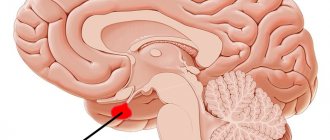Content:
- Signs indicating severe intoxication
- What to do in case of severe alcohol intoxication with vomiting
- Prohibitions to remember
- How to treat alcohol poisoning with vomiting in a narcological hospital
- What to do after overcoming alcohol poisoning with vomiting on your own
Any alcoholic drink (even with a low ethanol content) can cause acute intoxication
. Therefore, you should not drink alcohol. People who understand what ethyl alcohol does to internal organs and metabolic processes often decide to give it up forever. And this is the only right decision that can be made regarding strong drinks.
Very often, after a feast, alcohol intoxication and vomiting occur, which does not stop for a long time. It is very dangerous. Treatment of such poisoning at home is not always possible. But for fear of publicity about their problem, those who have been poisoned prefer to hush up the disease. You can't do that.
It is unacceptable to wait for your health to stabilize on its own, since the desired outcome may not occur. Everyone should know: very severe vomiting due to alcohol poisoning is an indication for receiving qualified drug treatment.
What diseases provoke headaches?
Intoxication manifests itself with the development of symptoms such as vomiting, nausea, fever, and may be accompanied by a headache, often very severe. It is provoked by the penetration of toxic agents into the nervous system.
These include:
- alcohol and drugs;
- heavy metals;
- industrial or household poisons, chemicals, volatile compounds;
- pathogens of infections.
Pain in the head during intoxication sometimes accompanies certain diseases of the internal organs. They are the result of the accumulation of toxic metabolic products.
- Headache due to poisoning is provoked by:
- liver and gallbladder diseases with impaired detoxification function of the liver;
- chronic gastrointestinal pathologies;
- urological ailments;
- diseases of the endocrine system and oncological processes.
Signs indicating severe intoxication
Symptoms of alcohol poisoning and vomiting appear a few hours after drinking or the next day. Narcologists often observe a reflex eruption of stomach contents with inclusions of blood. Bloody impurities indicate severe irritation of the gastrointestinal mucous membranes with alcohol or internal bleeding. Both reasons are very dangerous.
Ailments that occur the morning after drinking demonstrate an increase in the concentration of toxic acetaldehyde in the blood. The level of this component increases gradually. The more a person drinks, the worse his health will be.
There is no need to think that poisoning after drinking alcohol is safe. This is wrong. Of course, if a person does not have alcohol addiction and chronic diseases, he will most likely be able to recover on his own. However, no one can give such a guarantee. Refusal to receive medical advice is always bringing oneself closer to serious violations.
It is especially important to consult with a narcologist if, after drinking, you experience:
- nausea, vomiting;
- unproductive vomiting, due to which a large amount of saliva is released, it is not possible to drink even ordinary water;
- severe headaches;
- constant thirst;
- feeling of “goosebumps” running over the skin, numbness of the limbs;
- difficulties with orientation in space;
- a sharp increase or, conversely, decrease in blood pressure;
- gradual decline of basic neurological reflexes.
If vomiting that develops due to alcohol poisoning is very severe, a life-threatening disruption of the heart rhythm may occur. The person also runs the risk of falling into a coma and dying.
Hangover in alcoholics and drinkers is rare
Before we tell you how to cure a headache after drinking high doses of alcoholic beverages, we will give a small classification of this condition. It is important to understand that anyone can experience alcohol intoxication - both a drunkard and an almost teetotaler. To do this, you need very little - drink more alcohol than your body can quickly process and eliminate. But among alcoholics and light drinkers, ethanol poisoning occurs differently. Therefore, its treatment should be different. In the first case, narcologists talk about the development of withdrawal syndrome. This is a painful condition characterized by the following symptoms:
- tremor of the limbs, trembling of the whole body;
- severe pressing pain in the temples, back of the head;
- blood pressure surges;
- nausea;
- unproductive gagging;
- increased salivation.
An alcoholic trying to get out of a binge always feels very bad. He cannot eat anything and even drinks water with difficulty. His whole body hurts. He is looking for information on how to relieve a headache from a hangover, trying different pharmaceutical medicines or even traditional methods for this. But he knows that as soon as he gets a hangover, his condition will noticeably improve.
In the second case, when a person who is not dependent on alcohol is poisoned by alcohol, painful symptoms also develop, but they have a significant difference - the patient cannot even think about taking ethanol again. Just the thought of alcohol makes him feel sick.
What to do in case of severe alcohol intoxication with vomiting
The first thing you need to do is call a narcologist to your home.
This service can be obtained for money at a private narcology clinic. After contacting her, no one will register you.
Upon arrival to the patient, the doctor will immediately carry out the necessary therapeutic and preventive measures. But, if the patient’s condition causes concern, he will be taken to the hospital. It is very important that the poisoned person remains conscious throughout the entire treatment.
While the doctor is on the way, it is necessary to provide first aid to the person. To do this you should:
- Lay him on his left side.
This simple technique will prevent vomit from entering the respiratory tract. - Unfasten the top buttons of your clothes and open the window.
Then it will become easier for the addict to breathe. - In case of fainting, place a cotton ball soaked in ammonia to the drinker’s nose.
After inhaling ammonia vapors, he will come to his senses. - Perform gastric lavage.
This measure can only be used when treating people who are conscious and behaving adequately. A good solution for washing is a weak (caustic pink) solution of potassium permanganate. It must be drunk in an amount of at least one liter, and then pressed with your fingers on the root of the tongue. Some people think that the rich pink shade of the composition is more effective. This is wrong. If the concentration of potassium permanganate is high, a burn will occur to the mucous membranes of the pharynx, stomach, and intestines. - Apply cold to the occipital area.
Thanks to this, the gag reflex becomes less pronounced. It is clear that not every apartment has ice, so you need to improvise. Anything frozen or foods taken out of the refrigerator can be used as a compress.
Despite the simplicity of the methods listed, they are effective. Therefore, there is no need to forget about them.
It happens that the volume of alcohol taken is so high that a person loses consciousness. His heart stops. There is no need to despair. You should immediately begin chest compressions and artificial respiration. If resuscitation measures are not carried out, the poisoned person will die without waiting for the drug treatment ambulance.
Three-step algorithm for treating abdominal pain
Why painkillers don't help
Let's start with the simplest question: what should you do if discomfort appears in the abdominal area?
Of course, take a pill! For many of us, the answer is... "obvious." A person who cares “too much” about health, much less knows “more than necessary” about it, looks strange. From the point of view of many around him, he simply has nothing to do! The results are obvious: 45% of Russians, feeling pain in the stomach, grab analgesics... And only 28% take antispasmodics. Moreover, over the past six months, every sixth person felt pain in the abdominal area. Women are more often affected. Why is an analgesic dangerous for abdominal pain?
Because it will not eliminate the true cause of the unpleasant sensations, but will disguise it. Indeed, in 60% of cases the culprit of the pain syndrome is spasm.
What is a spasm?
This is an excessive contraction of smooth muscle cells in various organs. In our case we will talk about the digestive system. Inflammatory process - for example, gastritis, enteritis, colitis or ulcers, poisoning and other exposure to pathogenic microbes, a foreign body in the cavity of the digestive organ (a part from a toy in the stomach or a stone in the gall bladder), an imbalance of the substances we need - vitamins and microelements... Because of this, our organs, which are one way or another responsible for digesting food, feel uncomfortable and painfully contract. Analgesics do not act on the cause of the pain, and they will only affect the transmission of nerve impulses, and will not remove the spasm. Plus, as was said earlier, they will mask the pain - and the doctor will not understand anything. Or he will understand, but it’s too late. After all, the remaining 40% of abdominal pain - 4 cases out of 10 - are conditions in which you need to call an ambulance!
Acute pancreatitis, appendicitis, perforation of an ulcer, rupture of an aneurysm of blood vessels in the abdominal cavity, severe inflammatory diseases in women. Peritonitis is an inflammation of the peritoneum, which occurs not only when the appendix ruptures, but also when “treating” gynecological diseases through patience. A stone that has passed out of the gallbladder and blocked the bile duct. If you take an analgesic, it will be difficult for the doctor to understand where the cause of the illness is. And precious time when emergency surgery should have begun will be lost. The antispasmodic will not affect the sensations caused by acute cholecystitis, perforation of an ulcer or rupture of the appendix. The pain will not decrease.
What happens if you “treat” ordinary chronic gastritis with an analgesic?
Painkillers of this type are harmful to the gastric mucosa (and other digestive organs). If you take non-steroidal anti-inflammatory drugs for just a week, then one in five will have a stomach ulcer. And one in seventy will experience gastrointestinal bleeding. What if such patients also take analgesics to relieve pain? “Harmless and safe” drugs for pain relief have their side effects. Therefore, non-steroidal anti-inflammatory drugs and other analgesics should be taken under the supervision of a doctor! Turning them into daily medicine is dangerous. By the way, how long can you “treat yourself” with painkillers?
What to do if your stomach hurts?
In 2002, Vladimir Trofimovich Ivashkin, academician of the Russian Academy of Medical Sciences, chief gastroenterologist of Russia, director of the Clinic of Propaedeutics of Internal Diseases, Gastroenterology, Hepatology of the First Moscow State Medical University named after. THEM. Sechenov, developed a stepwise algorithm of actions for abdominal pain:
• Stage one – mild pain What to do: if necessary, take an antispasmodic. But: – if the pain occurred once, after unusual or poor-quality food, eating disorders or overeating, this is one situation. And if pain occurs with sufficient frequency, i.e. the stomach hurts sometimes or periodically, or in the morning, or after nervous stress, or even from hunger - the situation is completely different. Go to the doctor for an appointment as soon as possible!
• Stage two – the pain is quite severe and/or long-lasting. What to do: be sure to take an antispasmodic. After this, even if your stomach hurts less or the abdominal pain stops altogether, consult a doctor immediately!
• Stage three – very severe pain! Or pain that gets worse. If your stomach hurts unbearably, the cause could be those same 40% - appendicitis, rupture of the gallbladder, perforation of an ulcer, thrombosis of intestinal vessels. What to do: call an ambulance!
Five principles that are important for everyone to know
Abdominal pain is a special pain. Its nature is simply not taken into account by universal drugs for pain relief. And our compatriots, having encountered at least once a modern “optimized” clinic (according to Ministry of Health standards, there is one gastroenterologist per 70 thousand people), try to solve the problem by taking a pill. They will not be told why this is dangerous. After all, there are not enough doctors even for treatment, let alone for prevention and health schools. Therefore, the French manufacturer SANOFI organized a training program - “Pain that is dangerous to anesthetize” with the involvement of gastroenterologists in the educational project. Clinical pharmacologist, candidate of medical sciences, Alexander Maslyakov has developed another instruction for the patient - five principles of action for abdominal pain.
• Principle 1. One of the causes of abdominal pain is spasm, a contraction of the smooth muscles of the digestive organs under the influence of unfavorable factors. For this reason, medications that relieve pain are only first aid. Be sure to find out why your stomach hurts, i.e. what is the condition of the gastrointestinal tract, liver, gallbladder, pancreas and spleen.
• Principle 2. The first choice drug for abdominal pain is an antispasmodic. If you have a spasm of the smooth muscles of the stomach or intestines, you will feel less pain after taking the medicine. And in acute conditions that require urgent surgery, antispasmodics will not mask the pain, and the doctor will have time to understand what happened and how to act.
• Principle 3. For abdominal pain, analgesics are dangerous! They must not be used under any circumstances! A drug of this type will not eliminate the cause of pain - it will simply block the transmission of signals about problems in the body. The brain does not know about problems. Doctors won’t even know about them - after all, the pain sensations are masked, and it’s difficult to make a correct diagnosis.
• Principle 4. If an antispasmodic does not relieve pain within 2–3 hours, consult a doctor!
• Principle 5. If the abdominal pain is severe, if it increases or even simply does not decrease, if you have a high temperature, if your blood pressure is low, if you have nausea and/or vomiting, if you have a headache, call an ambulance immediately!
Be careful! Take care of yourself!
Link to publication: life24.ru
Prohibitions to remember
All of the above methods of providing first aid to people with alcohol intoxication should be used while the doctor is on the way. Imagining oneself as a luminary of science and trying to cure a person with severe poisoning is very risky. There is no need to give the patient medication. The only exceptions are sorbents that speed up the elimination of alcohol. But before using them, you should carefully read the information in the instructions.
Many drugs cannot be combined with ethyl alcohol. But only doctors know about this. It turns out that, wanting to alleviate the suffering of an alcohol addict, relatives can harm him. Illiterate drug correction can even lead to failure of vital organs. This is deadly.
It is forbidden to give a person a hangover
the day after the feast. Drinking alcohol does make you feel better for a while, but it increases the level of intoxication. This means that the toxic load on the body becomes more pronounced. Then it will take a very long time to recover.
Doctors prohibit dousing a person who has taken a large amount of alcohol with ice water or steaming them in a sauna or bathhouse. All these are extreme methods of traditional treatment. Often, it is after their implementation that cardiac failure begins. It is better to call a narcologist and wait for his arrival.
Attention! Attempts to lavage the stomach of a person who is in a semi-conscious or unconscious state lead to suffocation with vomit and instant death. You cannot induce vomiting if the patient loses consciousness.
Food poisoning: when you need a doctor’s help and when you can handle it yourself
Probably every person has experienced food poisoning at least once in their life. However, not everyone goes to the doctor. Most often, victims seek help in pharmacies, although some food poisoning requires prompt medical attention. How to help a person who has asked a pharmacist for advice, and in what cases is it better to refer him to a specialist?
Causes of food poisoning
Summer and early autumn are the times when people most often experience food poisoning. There are many reasons for this. Hot weather, due to which food spoils quite quickly, violation of sanitary and technological production standards, insufficient processing of fruits and vegetables before consumption, expired expiration dates.
Poisoning occurs due to exposure of the body to toxins contained in certain plants, mushrooms, animal and fish meat. Another cause of poisoning is microbes that multiply in unwashed, improperly processed or spoiled foods. Thus, food poisoning is divided into two types: microbial (infectious) and non-microbial (toxic).
How does this manifest itself?
Symptoms in all cases are approximately the same: nausea and vomiting, diarrhea, pain and cramps in the abdomen. In case of toxic poisoning, increased (up to 38 °C and above) or decreased (up to 36–35 °C) body temperature, as well as severe weakness and muscle pain may be observed. It is in case of toxic poisoning that the help of a doctor is most often needed.
Symptoms usually appear 2-3 hours after consuming low-quality products. The condition may worsen later, for example, after 6–8 hours with mushroom poisoning.
What should you know first?
To help a person, you need to understand what type of poisoning you are facing. The easiest way is to ask what the person ate a couple of hours ago. Green potatoes, raw or poorly cooked beans, the meat of certain fish, such as mackerel, burbot, pike, and, of course, mushrooms may contain toxins, but cottage cheese, fermented milk products, homemade pickles and marinades, meat, sausages, fruits and vegetables, eggs, and confectionery products can lead to microbial poisoning if these products have spoiled or were improperly prepared.
When is a doctor's help indispensable?
In addition, you should pay close attention to the appearance of the person who comes to the pharmacy for help, and ask in detail about the symptoms.
- If the symptoms of poisoning are supplemented by convulsions, bloody discharge with diarrhea or vomiting, a strong increase or decrease in temperature, cold extremities, changes in skin and tongue color, severe headaches, complete or partial loss of vision, rapid heartbeat, it is necessary to immediately refer him to a doctor, and It's better to call an ambulance. Such symptoms appear in severe poisoning, including salmonellosis, shigellosis, botulism, which can be fatal.
- You should not give advice on self-medication to pregnant women, the elderly and children. You should also consult a doctor if symptoms persist for more than 2-3 days.
- If during the conversation it turns out that the buyer ate mushroom dishes shortly before the deterioration, he should in any case be sent to the doctor - self-medication is definitely not suitable here.
The road to recovery: how to cope with poisoning
Mild poisoning can be dealt with without medical help.
Water.
The first advice to the buyer is to rinse the stomach by drinking at least half a liter of plain water (you can add a little salt or soda). This will increase vomiting and diarrhea and therefore free the stomach and intestines from bacteria and toxins.
Antiseptics
For severe diarrhea, you can recommend an antiseptic with antimicrobial and antifungal effects (Intetrix, Intestopan). It is better not to take antidiarrheal and antiemetic drugs in case of poisoning. Vomiting and diarrhea are very effective in helping to cope with poisoning, albeit not in the most pleasant way. If the buyer complains that the symptoms have been observed for several days, send him to the doctor - if necessary, he will be prescribed the necessary medications.
Sorbents
Sorbents Smecta, Enterosgel, Polysorb, Polypefan will help improve a person’s condition and speed up the process of removing toxins from the body. However, these drugs should be recommended if vomiting has already stopped. And advise taking a 20-30 minute break between taking sorbents and other medications.
Antispasmodics and enzymes
For cramps during poisoning, you can take antispasmodics, such as Duspatalin or No-shpa, and enzymes (for example, Mezim, Fistal or Panzinorm) to restore normal functioning of the digestive system.
...And again water
Vomiting and diarrhea lead to severe dehydration, which means you need to drink a lot of liquid, for example, still mineral water or rosehip decoction.
Offer the buyer water as an additional product
Anastasia Bychkova
How to treat alcohol poisoning with vomiting in a narcological hospital
The best place to combat acute alcohol intoxication is an inpatient drug clinic. Here the patient can undergo highly effective detox therapy. During it, cleansing droppers are placed, which:
- bind and remove toxins;
- wash away alcohol;
- restore healthy water and electrolyte balance;
- normalize acid-base balance;
- support the kidneys, liver, heart, brain.
After drips, the condition of the poisoned person improves quite quickly. In addition to these, narcologists perform various physical procedures. This can be intravenous laser blood purification, xenon therapy, intestinal lavage, plasmapheresis.
Before sending the patient home, the narcologist talks about the rules that must be followed in the near future in order to fully recover. When working with people dependent on alcohol, psychotherapy sessions are conducted. During them, techniques are used to convince the patient of the need for coding.
Treatment of headaches after alcohol in alcohol addicts
It is much more difficult for alcoholics to recover without qualified medical help. It is much easier for them to get drunk again than to overcome painful withdrawal. To interrupt the vicious spiral and relieve alcohol withdrawal, relieve a throbbing headache, the addict should call a narcologist at home or come to a drug treatment clinic on his own.
The best way to combat “alcohol migraine” is infusion therapy. This measure is effective for almost any negative symptomatology associated with alcohol dependence. The patient is given a drip and given:
- Detoxification medications. They may contain colloidal and plasma-substituting solutions. Drugs in this group quickly bind and remove the toxic breakdown products of ethanol, due to which the functioning of the entire body improves, and painful symptoms gradually disappear. The liver, kidneys and heart begin to work at full capacity. Negative effects on the brain are blocked.
- B vitamins. They break down ethanol, improve liver function, and reduce headaches. With their help, the addict sobers up faster. It also has a positive effect on the functioning of his nervous system.
- Analgesics. Needed to relieve painful symptoms.
- Sedatives. They relieve irritation and aggression, help the alcoholic to react more calmly to what is happening and behave adequately, and help normalize night sleep.
The drip may also include nootropics that support the brain. The doctor gives enterosorbents to the poisoned person orally. For alcohol intoxication, activated carbon and enterosgel are suitable.
If you go to the hospital, physiotherapy is added to therapy. A speedy recovery from prolonged drinking and severe headaches is facilitated by:
- Plasmapheresis. A technique aimed at cleansing the blood of toxic components. During this process, blood is collected, the resulting material and poisons are purified, and the purified plasma is subsequently returned to the bloodstream.
- Xenon therapy. An inhalation method that involves inhaling vapors of the noble gas xenon. During the session, the patient simply breathes xenon for about three minutes, after which he rests. The procedure gives a pronounced relaxing effect and relieves headaches.
- Intestinal lavage. The patient is offered to drink a cleansing solution, thanks to which his intestines are cleansed naturally. Due to the forced removal of toxins, health returns to normal faster, including headaches.
The combination of physiotherapy with drug therapy allows you to get excellent results in treating a hangover.
What to do after overcoming alcohol poisoning with vomiting on your own
If a person never consulted a doctor, and his health gradually became normal, this does not mean that he is completely healthy. Toxic metabolites of ethanol are eliminated slowly. While they circulate with the bloodstream, the internal organs have a hard time.
To support the body, you should drink a lot of water, fruit drinks, and herbal teas. It is important to take the absorbent for several days. Even regular activated carbon will do.
Meals should be light and balanced. Doctors recommend focusing on:
- non-acidic vegetables and fruits;
- low-fat chicken broth;
- lactic acid products.
In conclusion, we will answer the question: is it worth treating alcohol intoxication with vomiting on your own? No, if a person’s health is important. Sometimes even with not very severe intoxication, consequences arise that you have to deal with for the rest of your life. Stomach ulcers, pathologies of the nervous system, pancreatitis, encephalopathy are quite common complications of the feast. Don't allow them to develop. If you haven’t calculated the dose of alcohol during a feast, be sure to undergo treatment under the supervision of a narcologist.
How to identify surrogate poisoning
Headless: why Russians with cancer continue to smoke and drink
Even poor oral hygiene can lead to lip or tongue cancer
The first signs of surrogate poisoning are similar to a regular overdose of strong alcohol - nausea, turning into vomiting, dizziness, pain in the stomach and head. For a non-drinker, even 300 ml of pure alcohol - that's a 750 ml bottle of vodka - consumed in less than five hours can be fatal.
Further developments may vary depending on the amount drunk and its composition.
Thus, it is believed that the lethal dose of methanol is 100 ml. Over the next 24 hours after poisoning, the victim’s condition worsens: excruciating thirst, severe muscle pain, spots and double vision appear. In the future, blindness may occur, convulsions, agitation may appear, blood pressure drops, and interruptions in the functioning of the heart may occur. When a lethal dose is consumed, coma and respiratory arrest occur.
“Methanol alcohol poisoning occurs even from small doses,” Alexey Kazantsev, a psychiatrist and narcologist of the highest category, chief medical officer, explained to Izvestia. — Already 30–60 ml can lead to optic nerve paralysis, paralysis of the respiratory center and death. Methyl alcohol poisoning is accompanied by severe symptoms: the skin becomes gray-green in color, tachycardia, dizziness and severe dehydration are observed.
Bottle hit
Photo: Depositphotos/danielt.1994
Chemistry and death: what led to the poisoning on Sovkhoznaya Street
How did toxins end up in the blood of women who died after eating watermelon?
Some citizens who are very suffering from alcohol addiction can be poisoned by ethylene glycol, which is contained in antifreeze and solvents. Its lethal dose is 150 ml. After taking it, nausea also appears, turning into vomiting; after a few hours, headaches, pain in the lower back and abdomen occur, convulsions and indigestion begin. The skin and mucous membranes become dry, red with a bluish tint. The patient becomes agitated, his pupils dilate, and he may lose consciousness. In the most severe cases, heart, liver and kidney failure develops, pulmonary edema occurs, and the patient dies.
Literature:
- Grinenko A. Ya. Chronic alcohol intoxication. - St. Petersburg: Legal Center Press, 2007. - 537 p.
- Drozdov E. S., Zenchenko E. I. Alcoholism: 100 questions and answers. - M.: Soviet Russia, 1988. - 133 p.
- Melnikov A.V. Alcoholism. A recovery guide for drinkers and their loved ones. - M.: Practical Medicine, 2021. - 256 p.
- Luzhnikov E. A., Sukhodolova G. N. Acute poisoning in adults and children. - M.: Eksmo, 2009. - 560 p.
Need some advice?
OR CALL A DOCTOR
CALL!
+7










